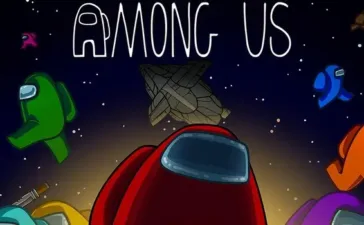In recent years, PlayerUnknown’s Battlegrounds (PUBG) has emerged as one of the most popular and influential video games in the world. However, its meteoric rise to fame was not without its controversies. The game’s addictive nature and potential impact on the mental health of players, particularly the youth, soon caught the attention of policymakers and the public alike. This article delves into the reasons behind the PUBG ban, examining how a gaming sensation transformed into a national concern.
The Gaming Sensation
It quickly gained a massive following due to its innovative Battle Royale gameplay, where 100 players are dropped onto an island to fight until the last survivor. The game’s adrenaline-pumping action and tactical challenges resonated with players worldwide, leading to millions of downloads and countless hours of gameplay.
The Addictive Nature
One of the key factors contributing to PUBG’s immense success was its addictive nature. The thrill of victory and the desire to improve one’s skills drove players to keep coming back for more. The game’s reward system, with cosmetic items and exclusive unlocks, further incentivized continuous play. As players invested more time, they became emotionally attached to their in-game progress, fostering a sense of loyalty towards the game.
Impact on Mental Health
While PUBG’s popularity soared, so did concerns regarding its impact on mental health, particularly among young players. Prolonged gaming sessions, often accompanied by sleep deprivation, led to physical and psychological strain. Moreover, the highly competitive nature of the game amplified stress and anxiety levels among players, especially those aiming to achieve high ranks or “chicken dinners.”
Parental Concerns
As the player base expanded to include younger audiences, parental concerns escalated. Reports of declining academic performance, irritability, and a neglect of real-life responsibilities became common. Parents and educators feared that prolonged exposure to PUBG could adversely affect the cognitive development and social skills of children and teenagers.
Public Outcry and Government Intervention
Amid mounting public outcry, several countries and states took measures to address the issues associated with PUBG’s addictive nature. In India, for example, the game was temporarily banned in 2019 by the state of Gujarat, citing its negative impact on children. Similarly, Jordan, Iraq, and Nepal also imposed bans to curb gaming addiction.
Regulatory Action and Legal Challenges
PUBG’s rising popularity and the controversies surrounding it caught the attention of regulatory bodies as well. Concerns about the game’s influence on the mental and emotional well-being of players prompted some governments to consider imposing age restrictions or limitations on gaming hours. In some cases, lawsuits were filed against the game’s developers, claiming that the game was intentionally designed to be addictive.
Positive Aspects of PUBG
Amid the calls for regulation and the negative attention, it is essential to recognize the positive aspects of PUBG as well. The game fosters teamwork and strategic thinking among players, promoting problem-solving skills and coordination. Many players find solace and camaraderie in the online gaming community, forming friendships that transcend geographical boundaries.
Developers’ Response and Efforts
In response to the growing concerns, PUBG Corporation took steps to address the issue of gaming addiction. They introduced in-game notifications to remind players to take breaks and set time limits on their gaming sessions. Additionally, they collaborated with mental health experts to raise awareness about responsible gaming practices.
Conclusion
The journey of PUBG from a gaming sensation to a national concern is a complex narrative shaped by its addictive nature, impact on mental health, and parental worries. While the game’s popularity cannot be denied, it is crucial to strike a balance between enjoying the gaming experience and maintaining a healthy lifestyle. Responsible gaming practices, parental guidance, and the active involvement of developers are necessary to ensure that PUBG continues to be a source of joy and entertainment while mitigating potential adverse effects.





